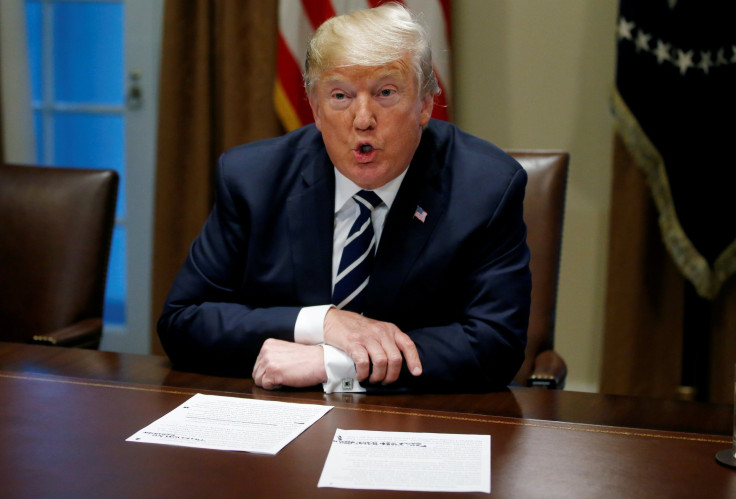White House Weighs Putin Proposal On Questioning US Officials

The White House on Wednesday declined to rule out accepting a Russian proposal for the questioning in the United States of Americans sought by the Kremlin for "illegal activities," including a former U.S. ambassador to Moscow.
The proposal arose at Monday's summit between U.S. President Donald Trump and Russian President Vladimir Putin, and any decision by Washington to assist with an adversary's prosecution of former government employees overseas would be a stunning shift in U.S. policy, especially as it could violate the international legal principle of diplomatic immunity.
"The president is going to meet with his team and we'll let you know when we have an announcement on that," White House spokeswoman Sarah Sanders told a news briefing. Sanders added that Trump "said it was an interesting idea ... He wants to work with his team and determine if there is any validity that would be helpful to the process."
Putin suggested at the Helsinki summit that he would let U.S. investigators be present for questioning of 12 Russian intelligence officers charged last Friday on allegations they carried out cyber attacks to interfere in the 2016 U.S. election if Russians could do the same in America for people connected to money manager Bill Browder, a onetime investor in Russia. Browder has said he helped expose corruption in Russia.
Putin accused Browder of making campaign contributions to Trump's election rival Hillary Clinton with money he earned in Russia on which he did not pay taxes. Putin said U.S. intelligence officers helped Browder.
On Wednesday, the Russian Prosecutor General's office listed Americans it wants to question for "illegal activities," including Michael McFaul, who was U.S. ambassador to Russia during the Obama administration and is now at Stanford University in California.
It also named other former U.S. officials, including someone it described as a former intelligence officer, Russia's state-operated RIA news agency reported.
At a joint news conference with Trump in Helsinki, Putin referred to a treaty with the United States governing legal assistance each country can provide the other in criminal cases, which, according to its text, would not necessarily require that Russians be allowed to directly pose questions on American soil and vice versa.
Federal Bureau of Investigation Director Christopher Wray was dismissive of the proposal. "I never want to say never about anything, but it's certainly not high on our list of investigative techniques," he told the Aspen Security Forum in Colorado.
U.S. State Department spokeswoman Heather Nauert called the Russian allegations "absolutely absurd."
"The prosecutor general in Russia is well aware that the United States has rejected Russian allegations in this regard," Nauert told a briefing.
McFaul told Reuters he has contacted Stanford lawyers. He denied Russia's accusations and expressed deep concern that the White House failed to defend him.
"It's crazy and should be called crazy and outrageous, not just by me, but by the U.S. government," McFaul said.
McFaul said the White House, by considering the request, was "assigning moral equivalence between a legitimate indictment of Russian intelligence officers ... to a cockamamie fantasy (from Moscow) with no basis in reality."
Browder said on Fox Business Network that it was "just shocking" for Trump's spokeswoman to say they were considering letting Russia question U.S. officials.
© Copyright Thomson Reuters {{Year}}. All rights reserved.





















